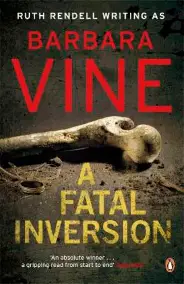See:
The Past In The Time Patrol Series...
However, mainstream fiction can do something very similar. In Barbara Vine's A Fatal Inversion, three alternating viewpoint characters suddenly have reason to fear that their misdeeds of ten years previously will be brought to light. They try hard to remember what happened, what they did and who that knew them then might be able to bear witness against them now. A long passage recounts what Rufus did ten years ago, then reverts to Rufus thinking about it now. Adam remembers in detail the house that he lived in ten years ago, then closes the passage by entering the house that he lives in now. The narrative jumps backwards and forwards in time in interesting ways that reflect the real world interplay between memory and present experience. Maybe not everyone can literally relive past experiences but maybe also some can come closer to this than others.
But flashbacks can play their part in any fiction, including time travel fiction. In Poul Anderson's The Shield Of Time, chapters recounting Manse Everard's mission in 209 B. C. alternate with his reminiscences of subjectively earlier although usually objectively later experiences in 1987 A. D., 976 B. C., 1987 A. D. and 1988 A. D. Then he does have a subjectively later experience in 1902 A. D.
Time and consciousness are the two main issues addressed by all fiction.

1 comment:
Kaor, Paul!
IIRC, some readers were confused by how there are writers who use flashbacks. Their preference was for stories starting from the beginning and going on to the end with no flashbacks, diversions, or sub-plots.
Hope this uploads.
Ad astra! Sean
Post a Comment